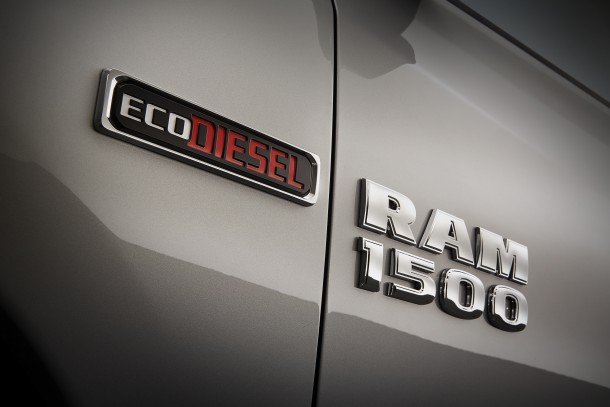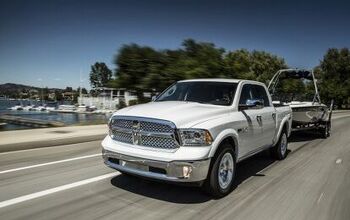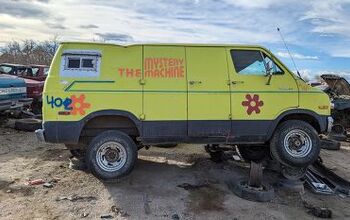Justice Department Sues Fiat Chrysler Over Diesel 'Defeat Devices'

The U.S. Department of Justice has filed a civil lawsuit against Fiat Chrysler Automobiles, alleging the automaker violated the Clean Air Act.
At the root of the lawsuit is roughly 104,000 Ram 1500 and Jeep Grand Cherokee vehicles equipped with the 3.0-liter diesel V6, sold between 2014 and 2016. Earlier this year, the Environmental Protection Agency accused FCA of failing to disclose eight auxiliary emissions control devices during the certification process. The vehicle’s software allows for higher-than-permitted emissions at certain times.
Despite FCA’s protests — as well as attempts to head off a potential multi-billion-dollar fine — the parallels between this case and Volkswagen’s emissions saga are growing by the day.
The EPA called the automaker’s failure to reveal the emissions software a “serious violation of the Clean Air Act,” and, as we’ve seen with VW, the penalties for such an infraction can be enormous. In FCA’s case, it could face a fine totaling $4.6 billion. The Justice Department launched a criminal investigation into the issue in January.
In its suit, the DOJ claims the software contained within the diesel SUVs and trucks means the vehicles do not reflect “the specifications provided to EPA in the certification applications, and thus the cars are uncertified, in violation of the Clean Air Act.” The nature of how the unapproved emissions software functions means it fits the definition of a “defeat device.”
While the vehicles behave normally during testing, they emit higher-than-legal levels of smog-causing nitrogen oxide in normal driving conditions, the DOJ claims.
FCA has remained in talks with environmental regulators ever since the EPA leveled its accusation, but it became clear last week that a federal lawsuit was nearly inevitable. Last Friday, with a lawsuit looming, FCA attempted to certify its sidelined 2017 model year EcoDiesel models. The automaker filed an application with the EPA and California Air Resources Board seeking emissions certification, declaring the vehicles contained “updated emissions software calibrations.”
Once approved, the updated calibration would be offered free of charge to owners of existing EcoDiesel models. “FCA US believes this will address the agencies’ concerns regarding the emissions software calibrations in those vehicles,” the automaker said in a statement last week.
Fiat Chrysler has issued a statement regarding the lawsuit:
FCA US has been working with the U.S. Environmental Protection Agency (EPA) and the California Air Resources Board (CARB) for many months, including extensive testing of the vehicles, to clarify issues related to the Company’s emissions control technology in model-year (MY) 2014-2016 Jeep® Grand Cherokee and Ram 1500 diesel vehicles.
FCA US is currently reviewing the complaint, but is disappointed that the DOJ-ENRD has chosen to file this lawsuit. The Company intends to defend itself vigorously, particularly against any claims that the Company engaged in any deliberate scheme to install defeat devices to cheat U.S. emissions tests.
The automaker went on to describe its updated emissions software, which it believes will not impact fuel efficiency or performance. “Notwithstanding this lawsuit, the Company remains committed to working cooperatively with EPA and CARB to resolve the agencies’ concerns quickly and amicably,” FCA stated.

More by Steph Willems
Latest Car Reviews
Read moreLatest Product Reviews
Read moreRecent Comments
- Dave Holzman You're right about that!
- EBFlex It will have exactly zero effect
- THX1136 What happened to the other companies that were going to build charging stations? Maybe I'm not remembering clearly OR maybe the money the government gave them hasn't been applied to building some at this point. Sincere question/no snark.
- VoGhost ChatGPT, Review the following article from Automotive News: and create an 800 word essay summarizing the content. Then re-write the essay from the perspective of an ExxonMobil public relations executive looking to encourage the use of petroleum. Ensure the essay has biases that reinforce the views of my audience of elderly white Trump-loving Americans with minimal education. Then write a headline for the essay that will anger this audience and encourage them to read the article and add their own thoughts in the comments. Then use the publish routine to publish the essay under “news blog” using Matt Posky listing the author to completely subvert the purpose of The Truth About Cars.
- VoGhost Your source is a Posky editorial? Yikes.


































Comments
Join the conversation
Wait... Jeff Sessions' Justice Department? Well cover me with moss and call me Pete. Who'd a thunk it?
FCA is not helping their case with "there isn't a problem, but we are fixing it now" release of a modification to the ECU. Either your cars are in compliance, and you prove that to the EPA, or they aren't, and you issue the fix, humbly apologize, and negotiate a token fine with the promise to Go Forth and Sin No More. Trying to have it both ways isn't going to make those negotiations go very well.